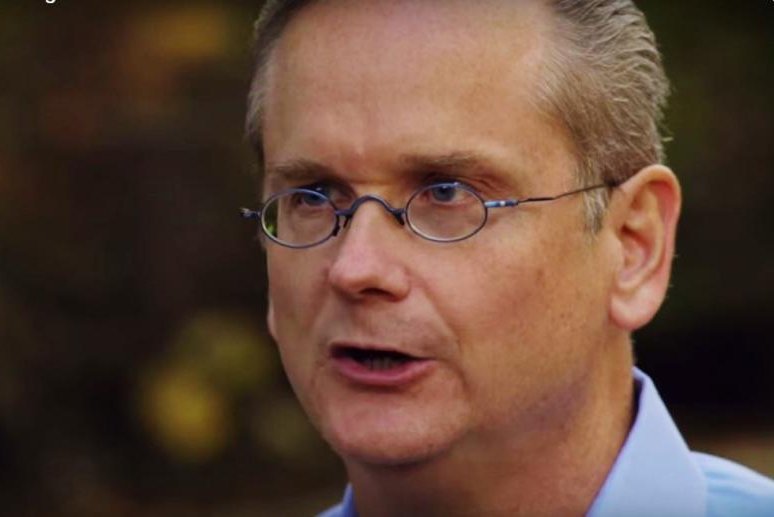Harvard law and ethics professor Lawrence Lessig on Monday officially dropped out of the race for the 2016 Democratic presidential nomination -- citing a rule change by the party that required him to have at least 1 percent support in three polls a minimum of six weeks before the Nov. 6 debate. Lessig said the previous requirement gave him until the week of the debate, this week, to qualify with that same support. Photo courtesy Lawrence Lessig / Lessig 2016
CAMBRIDGE, Mass., Nov. 2 (UPI) -- Harvard law professor and Democratic presidential candidate Lawrence Lessig formally dropped out of the race Monday, saying his campaign has become an exercise in futility after the party changed a rule that locks him out of its second debate.
Lessig explored the bid in August and entered the race a month later. However, he says, to have any chance at securing the nomination and becoming known to American voters he would have to participate in the second Democratic debate in South Carolina Friday.
But Monday, in a video posted to his campaign website, Lessig said there is no way for him to take part in the debate because the Democratic party has changed its prerequisite to enter.
"Until this week, the rule was three polls [showing] me at 1 percent [support] in the six weeks [leading up to] the debate," he said. "Last week we began to get close. Two polls found me at 1 percent. One more and I would be in the second debate."
"But under the new rule, the standard is three polls at least six weeks before the debate," he continued. "That means I would have had to have qualified at the beginning of October -- which means that nothing that happens now could matter.
"Under the new rule, unless we can time travel, there is no way that I will qualify."
The hallmark of Lessig's campaign was democracy reform. The Ivy League law and ethics professor has stumped for a new way of doing business in Washington, saying Congress is marred by corruption and contradicts the very foundation of democracy.
One of his first orders of business, if elected, would have been to launch an aggressive reform intended to give all American citizens an equal voice in government.
"The first priority of a Lessig administration would be to fix the corruption that has crippled Congress, by enacting legislation to restore the fundamental principle of a representative democracy: the equality of citizens," he wrote previously on his campaign website, in proposing the Citizen Equality Act of 2017.
Monday, though, Lessig acknowledged that his goals cannot be met if the Democratic National Committee won't allow him to debate.
"It is now clear that the party won't let me be a candidate," Lessig said. "And I can't ask people to support a campaign that I know can't even get before the members of the Democratic party.
"I must today end my campaign for the Democratic nomination and turn to the question of how best to continue to press this reform now."
Before launching his White House bid, Lessig promised to run if a crowdfunding campaign reached $1 million by Labor Day. That mark was achieved one day early.
Only three candidates are slotted for Friday's debate: Hillary Clinton, Vermont Sen. Bernie Sanders and former Maryland Gov. Martin O'Malley. Lincoln Chaffee and Jim Webb were invited to participate, but have since dropped their presidential campaigns.
The DNC did not immediately respond to a request for comment.















